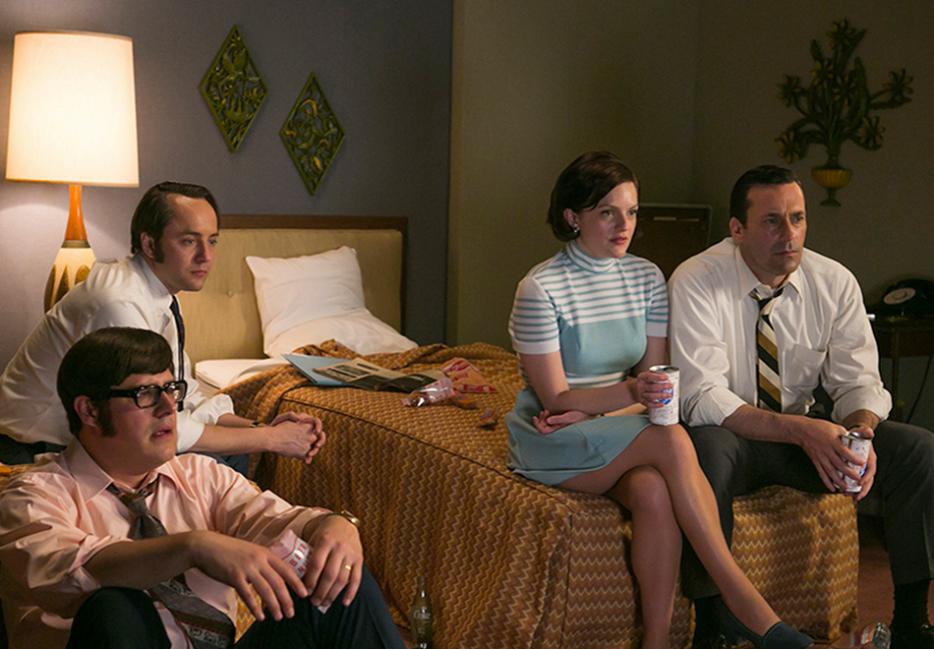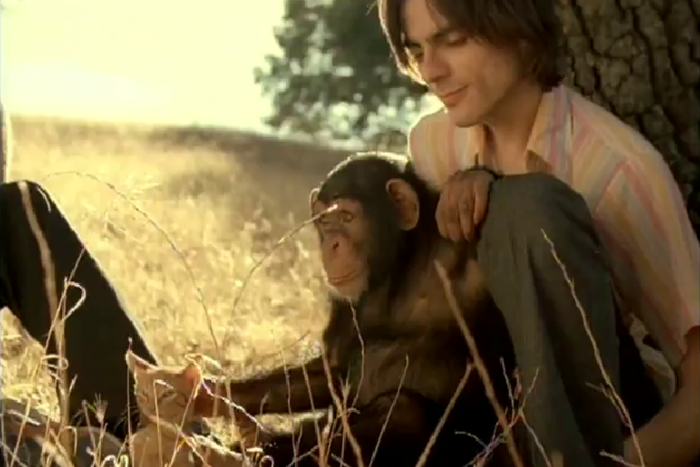True Detective was the show that told us time is a flat circle, but Mad Men is the show that lives by that maxim. It seems appropriate, then, that AMC is insistent on calling this year’s seven-episode run a half-season, signaling that we will be here in a year’s time in the same place, mentally: wherever we go with this show, there we are. As of last night’s mid-season finale, Don Draper and company found themselves in a fairly familiar place, albeit less one half of their firm’s namesake. As with season three, this year’s run ends with another bold play to maintain the status quo in a slightly altered form: a new subsidiary (though still in the same office!) run exactly the same way, a promise that seems crucial to all its partners—and, really, all its characters in general.
That its characters should be so concerned with staying in place—even if the odd one needs a bit of cajoling, whether by money or a Draper speech—seems like a nod by the writers at how, if not static, at least orbital this show’s people really are. One of the more revealing lines this season came during Don and Megan’s very placid dissolution, when Megan asked why Don insisted on staying at a place that seemed so eager to be rid of him: sure, sure, he built it, but this seems like a justification sprung up from the deep, inescapable fact that he just can’t will himself to leave, even when he’s got other offers on the table. For a man who has made his living convincing people to change the way they present themselves, he’s entirely unable to persuade himself to make actual changes: even his idea of keeping his head down and working quietly involves crashing a meeting to make a pitch.
He’s hardly alone on this show. The record will occasionally skip, but these characters always find their way back into their spinning groove. This is occasionally frustrating—more than a few people wondered aloud if, perhaps, Mad Men had lost its way in the first couple episodes—but the show nearly always has a way of coming out right, at least according to its own internal logic and goals. This is a show, after all, for which forward momentum is kind of a necessary evil—as necessary and evil as the passage of time—the thing that has to happen so it can pull apart its characters’ psyches into ever finer bits, pointillism-ing its way to some of the deepest psychological portrayals television has ever seen. Don and Peggy in particular don’t have character traits so much as personal totals, their actions both built and echoed again and again.
Still, as much as a show this patient and careful probably wouldn’t have been made (or at least allowed to mature) in any other era of television, it does occasionally feel out of place in this one. Nowhere did that seem more obvious than in Peggy’s arc this season, which saw a few years’ worth of setbacks and frustrations bubble up into slightly irrational (think of those Valentine’s Day flowers) and certainly angry moments at work. This seemingly new wrinkle for her character caused a fair bit of mid-season hand-wringing, the debate largely centering on the extent to which she was basically becoming a shrew—an insanely loaded type for a female character, though probably also one that could use a certain amount of dissection: it doesn’t seem remotely unreasonable that someone as smart as Peggy being so constantly smacked with reminders of the world’s unfairness (Ted Chaough’s “choices,” being only compared to other women, her pitch role as the voice of moms) might be a bit chippy.
From that point forward, though, given Peggy’s mini-renaissance, a lot of that speculation looks a bit absurd. It seems like a phase, born of creative frustration as much as personal—a note that will almost assuredly return, but is hardly definitive. Her tenderness with a lost soul (even if it was a child), her ability to handle Don (and to even get heartfelt tenderness out of him), her genius at her job—these are just as definitive aspects of her, and the ones that keep coming up again and again for the character who has certainly had the biggest change of circumstance on the show.
But that tends to get lost when we view the show in micro, as we view all shows (or at least all shows of Mad Men’s prestige). In each episode, there’s certainly plenty to chew on if you’re hungry, but the show is meant to be a sum, not its parts, adding up its smaller, less consequential bits into moments of real grace for its characters—points where they finally, just momentarily, break out of who they are, who they have been carefully built to be, and touch something tremendous. It’s pretty similar to the way things work in real life, actually, which isn’t bad for a show that occasionally throws in a posthumous dance number.
Mad Men pays off these moments like few other series, precisely because it keeps them both rare and obscured by the rut-like repetition of the day-to-day. Peggy’s big presentation, and especially that moment where the camera seems to take her point of view, the chatter of the meeting a dull buzz around her, is a ~*moment*~ at all because this is a person we’ve watched fight through endless personal frustrations, not to mention the odd gifted nipple. It’s singular, the kind of thing that couldn’t (and shouldn’t) be repeated, and the kind of thing that is necessarily going to escape the point-by-point recounting of the show.
Last night’s episode was structured around the moon landing, another of that decade’s changes that was at once rightfully momentous and terribly distant. The most touching moment of that sequence, though, didn’t come with everyone huddled around the television, but rather, when Sally stepped outside for a smoke and saw Neil peering through his telescope at Polaris. It was a magic moment—a bold, stolen kiss, and a melting of Sally’s cynicism—and a prosaic one: she still lights that cigarette. It seemed, too, like a little nod not just to the fact that there is always a much grander mystery behind even monumental moments, but that we can’t understand everything just by peering more intently into the television.
Image via Jaimie Trueblood/AMC






